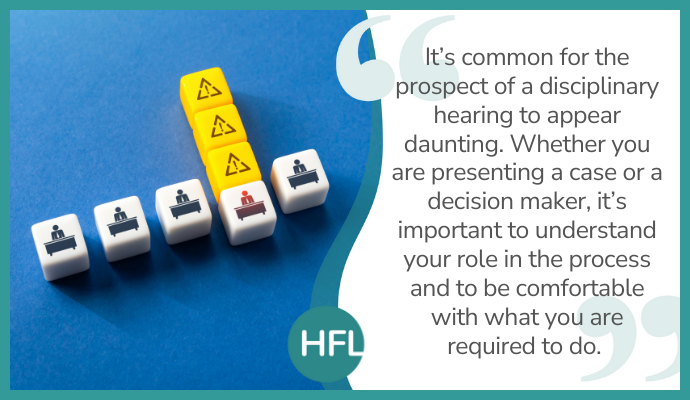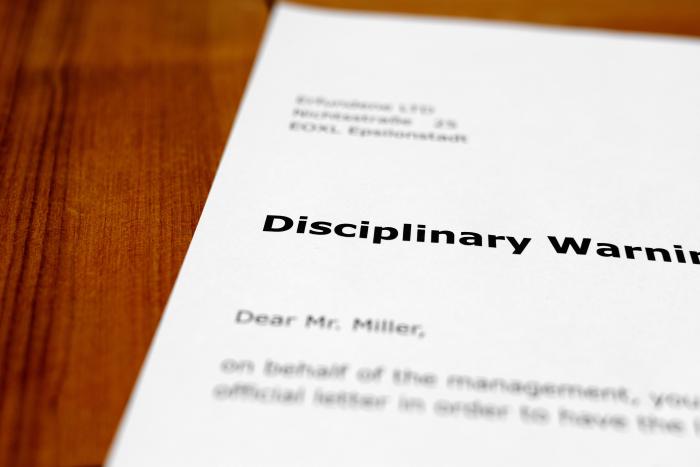
It’s common for the prospect of a disciplinary hearing to appear daunting. Whether you are presenting a case or a decision maker, it’s important to understand your role in the process and to be comfortable with what you are required to do.
Firstly, it’s important to ensure all steps prior to the hearing have been completed –
- has the employee been notified of the alleged misconduct?
- has any evidence from the investigation been shared with the employee?
- has the employee been formally invited to the disciplinary hearing with reasonable notice?
- has the employee been given information on their right to be accompanied to the hearing?
- has the employee been made aware of the possible outcomes?
Not only do these steps keep you compliant with legislation and the ACAS Code of Practice, being clear up front and sharing the disciplinary policy can answer common questions from employees such as ‘What is a disciplinary hearing?’, ‘Can I bring someone with me to the hearing?’ and ‘Can I be sacked at a disciplinary meeting?’
When presenting a case you need to consider all of the relevant information, has the matter been investigated fully, have you gathered all the evidence and put it into a succinct format for others to understand?
When you are the decision maker or part of a panel, do you know the questions to ask, can you identify possible risks and deal with challenges?
How do you fulfil these roles with confidence and ensure you are reaching the right outcome for employees and your setting?

It is important to be aware that although a disciplinary hearing is an internal process, an employee who has been dismissed can take their case to an employment tribunal if they feel the decision has been unfair. This can mean the decisions being made at any point in the process can be scrutinised by an external body. In particular, a tribunal will look to see if the process has been fair and has followed the organisation’s own policy. They review whether the dismissal would be deemed reasonable based on the facts, and consider if the situation had been heard by a different panel, the likelihood that the same outcome would be reached. The penalties for getting it wrong can be costly, both financially and reputationally.
It is a statutory requirement for Schools and Trusts to have a policy covering their disciplinary process. You will need to be aware of and follow your own setting’s policy. At HFL Education we provide a model policy for our customers that covers all you need in order to be legally compliant and to follow the ACAS Code of Practice. We also have a wealth of resources and our experienced team to support this process.
However, a policy can only go so far, how else might you get experience and become more familiar with the role you have to play? Are you able to attend HR courses? Can you shadow colleagues?
We think that seeing a disciplinary hearing in action is an excellent way to see how the meeting could play out and to build confidence in your own role. With our legal partners, Forbes Solicitors, we have created a Mock Disciplinary event where you can witness a hearing without the pressure of being involved.
You might be a leader in a school or trust who could be carrying out a disciplinary investigation, you might be a Headteacher who is the Commissioning Manager and is presenting the case at hearing, you might be a governor who is asked to be a decision maker or part of a panel. All will benefit from this experience which will enhance your ability to be effective in your role.

Contact our HR team on to find out when our next Mock Disciplinary Hearing will be on 01438 544463.
We are running a Mock Tribunal on 27th September 2023 based on the same facts to allow delegates to participate in a process from the outset to conclusion.






